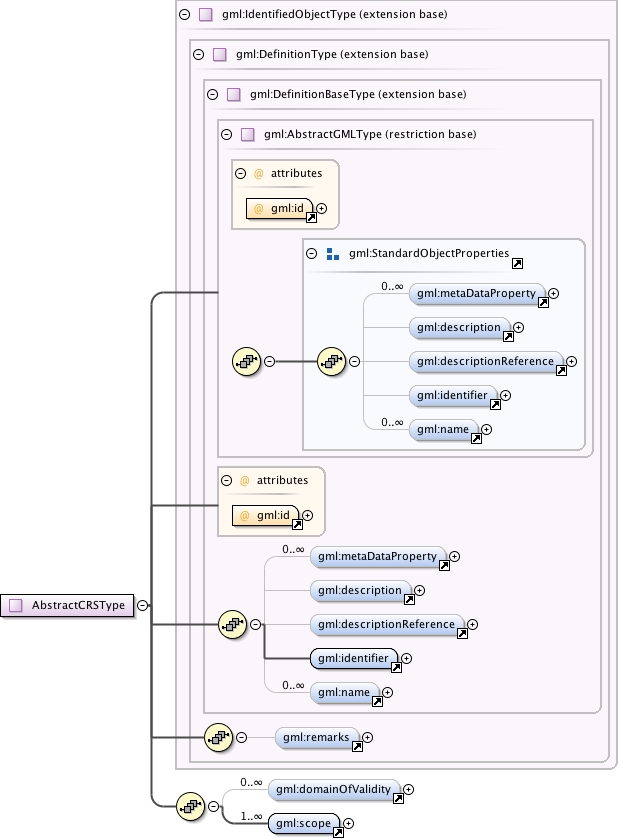| Namespace | http://www.opengis.net/gml/3.2 | |||||||||||||
|
Diagram
|
 |
|||||||||||||
| Type | extension of gml:IdentifiedObjectType | |||||||||||||
| Type hierarchy | ||||||||||||||
|
Properties
|
|
|||||||||||||
|
Used by
|
||||||||||||||
| Model | gml:metaDataProperty* , gml:description{0,1} , gml:descriptionReference{0,1} , gml:identifier , gml:name* , gml:remarks{0,1} , gml:domainOfValidity* , gml:scope+ | |||||||||||||
| Children | gml:description, gml:descriptionReference, gml:domainOfValidity, gml:identifier, gml:metaDataProperty, gml:name, gml:remarks, gml:scope | |||||||||||||
|
Attributes
|
|
|||||||||||||
|
Source
|
|
|||||||||||||
| Schema location | http://schemas.opengis.net/gml/3.2.1/referenceSystems.xsd |